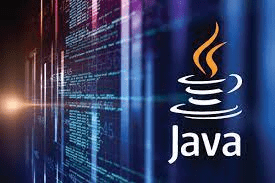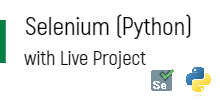JAVA
Description
- Basics of Java
Chapter 1 contains the basic introduction to the Java language such as
√ What is Java?
√ History and Features of Java
√ C++ vs Java
√ Hello Java Program
√ Internal How to set the path?
√ JDK, JRE, and JVM (Java Virtual Machine)
√ JVM Memory Management
√ Internal details of JVM
√ Unicode System, Operators, Keywords, and Control Statements like if-else, switch, For loop, while loop, etc.
- Class, Object, and Types of classes
Chapter 2 deals with the most important and core concepts of Java. They are:
√ Naming convention of Java
√ Classes, Objects, and Features. It explains how to declare a class, how to create an object in Java.
√ Object declaration and initialization
√ Life cycle of an object
√ Anonymous object in Java
Class and Objects in Java with RealtimeExample
- Packages in Java
Chapter 3 deals with Packages in Java. Under this chapter, we will learn the following topics.
√ How to declare package in a company project
√ Package naming conventions
√ Sub packages
√ Types of packages such as user-defined packages, built-in packages
√ Importing packages in Java
Packages in Java with Example Programs
- Data types in Java
This chapter deals with the following topics in Java.
√ Data types in Java
√ Primitive data types
√ Non-primitive data types
√ Memory allocation of primitive and non-primitive data types, etc.
- Variables, Constants, and Literals
Chapter 5 discusses three topic variables, constants, and literals. You will learn the following subtopics in this chapter.
√ Variable declaration & initialization
√ Naming convention
√ Types of variables such as local variables, instance variables, and static variables
√ Scope and memory allocation of variables.
Variables in Java | Types of Variables
- Methods in Java
√ Methods in Java
√ Use of method in Java
√ Method declaration, method signature
√ Types of methods in Java: predefined method, user-defined methods: instance method, static method
√ Calling of method
√ Java main method
√ Return type in Java.
Java Methods | Declaration & Method Signature
- Constructor in Java
In this chapter, you will familiar with topics like:
√ What is Constructor in Java?
√ Types of constructors: Default and Parameterized constructors
√ Java constructor overloading
√ Constructor chaining in java
√ Copy constructor in Java
- Modifiers in Java
This chapter deals with topics like
√ What is Access modifier and Non-access modifier in Java?
√ Types of access modifiers like private, default, protected, and public
√ Types of Non-access modifiers like abstract, final, native, static, Strictfp, synchronized modifier, transient, volatile.
- Static Keyword
This chapter deals with the following important topics.
√ What is Static keyword?
√ Static method
√ Static block, Instance block
√ Static Nested Class in Java
√ Difference between static variable and instance variable, static method and instance method, static block, and instance block.
- Final Keyword
Under this chapter, you will learn three important topics:
√ Final variable
√ Final method
√ Final class.
- Inner Class in Java
This chapter deals with the following topics. They are:
√ What is Inner class in Java?, Properties of inner class, Instantiating inner class.
√ Types of inner class in Java: Normal inner class, Method local inner class, Anonymous inner class, and Static nested class.
- Super and this Keyword
This chapter can be partitioned into two sections: Super and This keyword. The first section discusses with
√ Calling of superclass instance variable
√ Superclass constructor
√ Superclass method.
The second section deals with
√ This keyword
√ Calling of current class constructor, and method.
- OOPs concepts
In this chapter, you will learn the most important topic Object-oriented programming system (OOPs). In the OOPs concept, you will learn class, object, encapsulation, inheritance, polymorphism, and abstraction. All topics are very important for interview purposes.
- Encapsulation
This chapter deals with the following topics in Java.
√ How to achieve Encapsulation
√ Data hiding
√ Tightly encapsulated class
√ Getter and setter method in Java
√ Naming convention of getter and setter method
- Inheritance
This chapter deals with
√ Is-A Relationship
√ Aggregation and Composition(HAS-A)
√ Types of inheritance: Single level, Multilevel, Hierarchical, Multiple, and Hybrid inheritance.
- Polymorphism
This chapter deals with
√ Types of polymorphism: Compile-time polymorphism and Run-time polymorphism
√ Static and Dynamic Binding
√ Rules of method overloading and method overriding, various example programs related to rules of overloading and overriding.
√ Covariant Return type
- Abstraction
In this chapter, you will familiarize with the most important topics in Java.
√ Abstract class
√ Abstract method
√ Nested interface, rules, and example programs.
- Garbage Collection
This chapter deals with garbage collection in Java.
- Input Output Stream
In this chapter, you will learn topics like
√ FileOutputStream, FileInputStream
√ BufferedOutputStream, BufferedInputStream
√ SequenceInputStream
√ ByteArrayOutputStream, ByteArrayInputStream
√ DataOutputStream, DataInputStream
√ Java FilterOutputStream, Java FilterInputStream
√ Java ObjectStream, Java ObjectStreamField
√ Console
√ FilePermissionWriter, Reader, FileWriter, FileReader
√ BufferedWriter, BufferedReader
√ CharArrayReader, CharArrayWriter
√ PrintStream, PrintWriter
√ OutputStreamWriter, InputStreamReader
√ PushbackInputStream, PushbackReader
√ StringWriter, StringReader
√ PipedWriter, PipedReader
√ FilterWriter, FilterReader, File FileDescriptor, RandomAccessFile, and java.util.Scanner.
- Collections Framework
This chapter is one of the most favorite chapters of the interviewer. It deals with the following important topics like
√ What is Collections Framework?
√ List, Set, SortedSet, Queue, Deque, Map, Iterator, ListIterator, and Enumeration.
√ ArrayList, LinkedList, HashSet, LinkedHashSet, TreeSet, ArrayDeque, PriorityDeque, EnumSet, AbstractCollection, AbstractList, AbstractQueue, AbstractSet, and AbstractSequentialList.
√ Map, Map Entry, SortedMap, and NavigableMap
√ HashMap, LinkedHashMap, TreeMap, IdentityHashMap, WeakHashMap, and EnumMap.
√ Comparator, RandomAccess interfaces as well as Observable class.
- Serialization
This chapter deals with Serialization, Deserialization, and Java transient keyword.
- Exception Handling in Java
This chapter is very important for any Java technical test or Java technical interview. In this chapter, you will familiar with
√ Try-catch block
√ Multiple Catch Block
√ Nested try block
√ Finally block
√ Throw Keyword
√ Throws Keyword
√ Throw vs Throws, Final vs Finally vs Finalize
√ Exception Handling with Method Overriding Java Custom Exceptions
- Java Annotations
This chapter deals with Java annotations, Built-In Java annotations like @Override, @SuppressWarnings, @Deprecated, @Target, @Retention, @Inherited, @Documented, Java custom annotations, and types of annotations.
- Reflection in Java
√ Reflection API
√ NewInstance() & Determining the class object
√ Javap tool, Creating javap tool
√ Creating applet viewer
√ Accessing private method from outside the class
- Java Array
This chapter deals with
√ Java Array
√ Types of array: single dimensional array, multidimensional array, declaration, instantiation, and initialization of Java array
√ Passing array to a method
√ Anonymous array in Java
√ Cloning an array in Java
- String, String Buffer, String Builder
This is the most important chapter in the whole core java. It will deal with basically three topics such as
√ String,
√ Immutable String
√ String Comparision, String concatenation
√ Substring
√ StringBuffer class
√ StringBuilder class
√ toString method
√ StringTokenizer class
- Java Thread
√ Java multithreading
√ Multithreading life cycle of a thread creating
√ Thread scheduler
√ Sleeping a thread, Start a thread twice
√ Calling run() method
√ Joining a thread
√ Naming a thread
√ Thread priority,
√ Daemon thread
√ Thread pool
√ Thread group
√ Shutdownhook
√ Java Synchronization: synchronized method, synchronized block, static synchronization
√ Deadlock
√ Inter-thread Communication
√ Interrupting Thread
- JDBC
This chapter deals with
√ JDBC Drivers
√ Steps to connect to Database
√ Connectivity with Oracle
√ Connectivity with MySQL
√ Connectivity with Access without DSN
√ DriverManager
√ Types of JDBC statements: Statement, Prepared statement, Callable statement
√ Database Metadata, Resultset Metadata
√ ResultSet, types of ResultSet,
√ Storing image, Retrieving image
√ Storing file, Retrieving file, Stored procedures, and functions
√ Transaction Management
√ Batch Processing
√ JDBC New Features, Mini Project, and interview questions.










